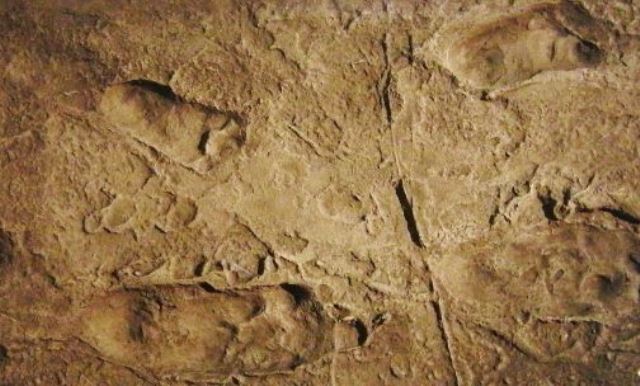MEMBERS of the Parliamentary Committee for Lands, Natural Resources and Environment have called upon the Ministry of Natural Resources and Tourism to ensure that it aggressively promotes the notion that Tanzania is the only ‘birth place,’ for mankind in the world.
The legislators, who were accompanied by the Permanent Secretary (PS) in the ministry, Major General Gaudence Milanzi, issued the stance during their official tour of Ngorongoro Conservation Area Authority (NCAA), where they also visited the newly inaugurated Olduvai Site Museum which documents the history of mankind.
The MPs made the statement at a time when a new set of footprints is reported to have been discovered in Crete and which allegedly dates back to 5 million years, thus seeming to challenge long reigned position held by Laetoli Hominid Trackway in Ngorongoro which was confirmed to be 4 million years old.
But archaeologists and researchers around the world are already dismissing the Greek Islands’ discovery as being ‘forced’ and yet to undergo rigorous scientific testing; before Crete could make the claims.
When contacted by this newspaper, Dr Charles Musiba, the Associate Professor at the University of Colorado Denver, pointed out that when it comes to fossils and other hominid discoveries, it takes years of extensive testing and research before any finding can be endorsed to join coveted historical listing.
“As far as the Science Community is concerned, the Laetoli Footprints foundin the Ngorongoro are the only reference as far as such discoveries are concerned,” said Prof Musiba, who has also been studying the archaeological findings in Northern Tanzania.
Greek Islands recently announced that fossil hominid footprints laid down more than five million years ago in what is now Crete could belong to a previously unknown primate and perhaps even an ancient hominin, an animal more closely related to humans than to chimps. Dr Per Ahlberg at Uppsala University in Sweden and his colleagues identified more than 50 of the trace fossils in an area less than four square metres and went to demand that the prints were stamped on the ground nearly 5.7 million years ago by some claw-less and bipedal creature, possibly human ancestor.
However, scientists, including members of the International Committee and Archaeological Heritage Management (ICAHM) and International Council of Monuments and Sites (ICOMOS), who also recently visited Laetoli, said the interpretation of these footprints as belonging to a hominin was controversial.
They explained that it was due to the missing link, which connects previous hominid discovery precincts, pointing out that Crete is quite a long distance from all other sites where hominins of a similar age have been found in Tanzania, Kenya, Ethiopia and Chad.



